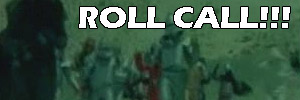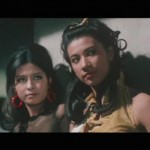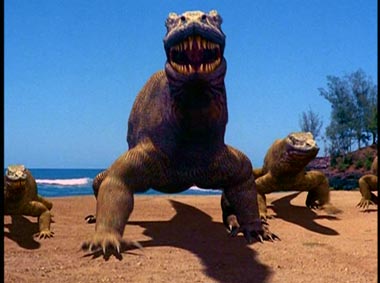Ironfinger
aka 100発100中 aka Hyappatsu hyakuchu aka 100 Shot, 100 Killed

1965![]()
Written by Michio Tsuzuki and Kihachi Okamoto
Directed by Jun Fukuda

The world of 1960s spy films is a crazy place, filled with all sorts of local infusions of the James Bond formula. Jun Fukuda drops a pair of flicks that take inspiration from the jet-setting spy and the local Japanese yakuza and crime films. Like all good 60s spy flicks, things aren’t taken 100% serious, and Ironfinger is practically an action comedy. The era wardrobe and locations give flavor that can’t be reproduced any more, and our hero Andrew Hoshino runs around from country to country on his own agenda, that’s not as innocent as it first appears.

Ironfinger is a movie of the world. It’s original title translates to 100 Shot, 100 Killed, but it’s given a James Bond-esque retitle for overseas release. Andrew Hoshino himself is a man of the world, French-born Japanese who speaks both languages, as well as English, with ease. His “vacation” sees him embroiled in an international weapons smuggling conspiracy that reaches all over the Pacific Rim, running from Japan to Hong Kong to the Philippines. Ironfinger speaks five languages, has characters who get angry because the wrong language is being spoken, yet the story is universal enough to be entertaining to everyone.

Andrew Hoshino plays the innocent tourist caught up in crime and continually referencing his Mama. but it becomes abundantly clear that he’s more than he appears, but never so clear you understand just what he is. Secret agent, criminal, Interpol? Your guess is as good as anyone else’s. Even his name isn’t his own, he acquires it from the passport of a murdered friend. Hoshino has a string of running gags, beginning with where he’s constantly losing and getting back his hat (originally his murdered friend’s hat), the hat containing a concealed weapon. Hoshino is also constantly captured, spending the majority of the running time in custody of one gang or another. Yet he always manages to escape through the power of his mouth or his skills, falling upward and into the arms of beautiful women.
Ironfinger and its sequel Golden Eye were best known for the strong Godzilla alumni connection. Both star Akira Takarada and costar Akihiko Hirata had roles in the original film and many subsequent sequels, but Bond girl Mie Hama also pops up in a few Toho kaiju flicks. Director Jun Fukuda has long been connected to the franchise, even helming Godzilla vs. the Sea Monster, Son of Godzilla, Godzilla vs. Gigan, Godzilla vs. Megalon, Godzilla vs. Mechagodzilla, ESPY, The War in Space, and episodes of the Zone Fighter tv series. These connections helped bump Ironfinger up the list for a Criterion release, and both Ironfinger and Golden Eye look fantastic and have nice subtitles. As these reviews are based on the streaming versions, I did not view any extras.


|

A gang war between two rival sides, the Akatsuki and Aonuma families, both buying weapons from the same suppliers, is the in that attracts the attention of the police. Andrew Hoshino doesn’t care about the war, his goal is getting to the man behind the weapons supplier. Yumi Sawada is a contract player for the Akatsuki family, but her allegiance is to herself. She recognizes that Hoshino is a bigger fish than he appears, and attaches herself to him as a partner, in so far as she knows he’ll end up on top.
Detective Ryuta Tezuka is the local Japanese police who sees the gang war and realizes bigger players are at work. When he’s not captured or rendered unconscious. He runs around similar to Gary Oldman’s Jim Gordon, someone who looks out of place in the tough word, but actually fits in spectacularly well. Though Tezuka returns for the sequel, Ichiro Arishima relinquishes the role to Makoto Sato, who plays him distinctly different.
The international production has international villains, who hide under the cloak of other identities until exposed. Their success in hiding explains why the various local agencies were having no luck in quashing the gun production, it had tentacles around the world. It takes a man not connected to local agencies to be able to unravel and stamp out the problem.


Andrew shows that he’s not entirely a moralistic hero due to his willingness to simply murder villains, stylized by setting up shooting scenarios where they actually have a small chance of escaping. If Andrew Hoshino wasn’t the best shot in the universe and the hero of a film franchise. Only Tezuka seems to think that Hoshino’s involvement is something that might require further investigation, though the international man can quickly relocate out of any problems, so such investigations would just be a dead end.
Ironfinger features some Bond stunts, including an airplane to airplane rescue that deserves much love. The final fight features a trick that is just plain ridiculous, though would not seem out of place in an older Bond film. It’s still crazy enough that I have to deduct points. Ironfinger throws its swinging pulp around with swagger, though despite Andrew being continually captured again and again, he never feels in danger, the only mystery is how many bodies will he pile up as he takes down the villain.
The cast looks like they’re having fun, the seriousness of the situation never contemplated on, as it gets in the way of being a cool cat. The fun only stops during the showdowns Andrew has with the villains, the abrupt change in tone highlighting their doom. Yumi Sawada in particular is just constantly having a carefree good time, sure she blows people up for a living, but a girl’s got to afford a fancy swimsuit to water ski with.
The casual and fun tone of Ironfinger could be a disadvantage today, with everyone clamoring for dark and gritty realistic adaptations of their media. I have soured on those kinds of stories long ago, and welcome these older fun tales with open arms. Making something dark doesn’t change the fact that the core concept is ridiculous. The saturation of the concept is why people like me seek out these films and help push gems to others who have grown fatigued. Ironfinger is a burst of energy that we need sometimes.


Rated 7/10 (Toho, passport, living gun rack, boss, smuggler, drum, the boss boss)
Please give feedback below!






















